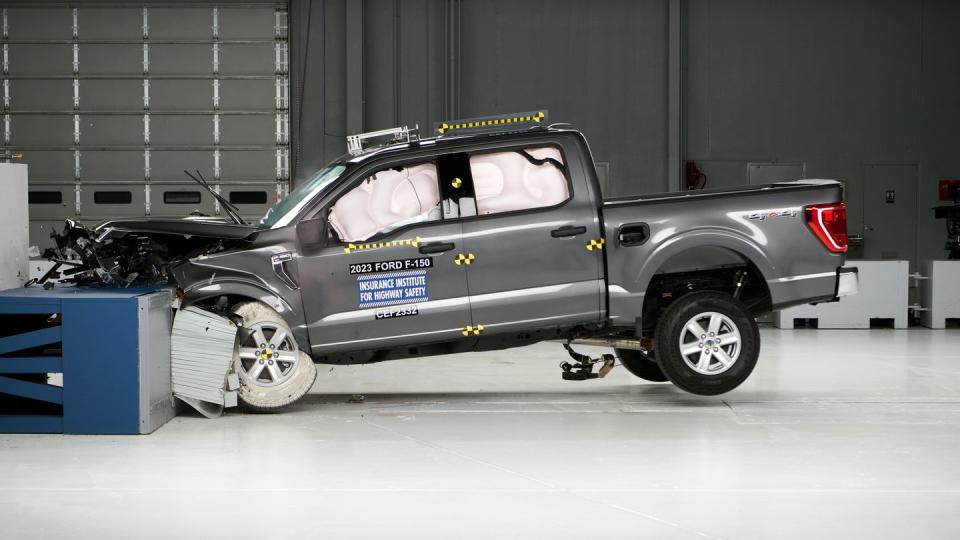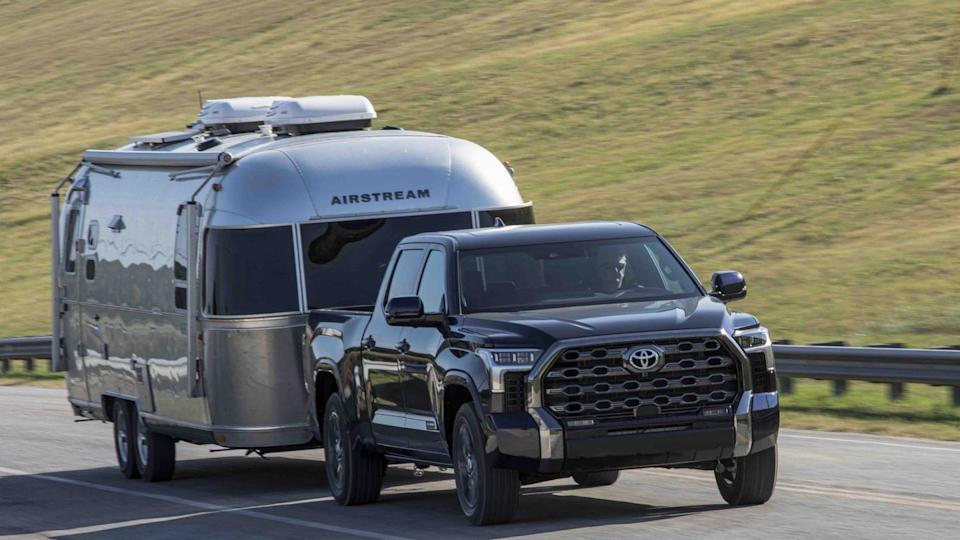Certain Crash Tests Are Problematic for Your Favorite Pickup Truck

Bigger vehicles aren't necessarily safer, whether you're a rear-seat passenger, a pedestrian, or even someone who drives a smaller car.
Pickup trucks are enormously popular, increasingly used as a family hauler as well as a work machine.
Because of this, the IIHS says rear-seat safety needs to be revised significantly, targeting all of America's favorite pickup nameplates.
Safety is relative to many factors, both environmental and individual, but there are certain undeniable facets of driving safety. Among these are size and inertia, which heavily influence the public's perception of what makes a safe car.
Many buyers purchase SUVs and trucks as a result, even if the broader safety impact of these vehicles tells a different story. However, for personal safety, the proof is in the pudding, as the Insurance Institute for Highway Safety releases its latest round of crash testing on America's favorite pickup trucks.

In testing 2023 crew-cab models of the Ford F-150, Chevrolet Silverado 1500, Ram 1500, and Toyota Tundra, the IIHS wanted to update its side-impact results as well as put these best sellers up against its new moderate overlap front crash test.
Compared to the rest of the road-going market, the side-impact crash tests were much easier for trucks to earn passing marks, in large part due to the excessive ride height exhibited by modern trucks. Notably, three of the four trucks received the highest grade of good on the IIHS updated side-impact test, leaving the Chevrolet Silverado behind.
Due to a marginal rating in its ability to protect rear-seat passengers from torso trauma in a T-bone collision, the 2023 Silverado received an overall side-impact rating of acceptable. But the Chevy wasn't alone in its safety shortcomings when faced with the new moderate overlap crash test.
"Like most other vehicle classes, large pickups don’t perform as well in the new moderate overlap evaluation as they do in the updated side test, which is now a requirement for our Top Safety Pick awards," said IIHS President David Harkey.
To jog your memory, the moderate overlap crash tests are essentially a glancing head-on collision, a type of crash that is growing increasingly common, impacting 40% of the front end and causing a higher fatality rate.
The IIHS says front-seat safety has become so advanced that most modern vehicles perform admirably in this once-challenging test.

While large vehicles like trucks are generally perceived to be safer, they actually don't perform that well in a moderate overlap crash, the IIHS says. We've previously covered the farce that is family safety in the rear seat of SUVs, particularly for children, and pickup trucks are no different.
In order to earn a good rating in the eyes of the IIHS, there can’t be an excessive risk of injury to the body, as recorded by the second-row, child-sized dummy. Similarly, the structure of the vehicle itself must maintain enough space for occupant survival, and all four trucks meet these requirements in the front seat.

But the rear seat paints a significantly different picture. Only the 2023 Toyota Tundra scored above the lowest rating of poor, receiving a marginal score thanks to appropriate seatbelt tension. Ford, Ram, and Chevrolet all received a poor rating for the safety of rear-seat occupants in a moderate overlap crash.
Specifically, the IIHS said injuries to the chest, head, or neck would be likely in the F-150 and Ram 1500, with the Silverado 1500 improving upon these issues ever so slightly. While the Tundra scored above all three domestic trucks, the IIHS said the risk of chest injury persisted, though the potential for head and neck injuries was reduced.
"Submarining was a problem for all four pickups, and belt forces were too high in all but the Tundra," Harkey said.
There is good reason behind the IIHS' insistence on rear-seat safety. Better airbags and advanced seatbelt systems in the front make the risk of a fatal injury 46% higher for belted occupants in the rear seat in vehicles from model year 2007 onwards, according to IIHS research. Just like minivans, it's worth rethinking which truck you use to haul your family around.
If you own a pickup truck, did you buy it primarily for work purposes or as a family vehicle? Please share your thoughts below.

 Yahoo Autos
Yahoo Autos 